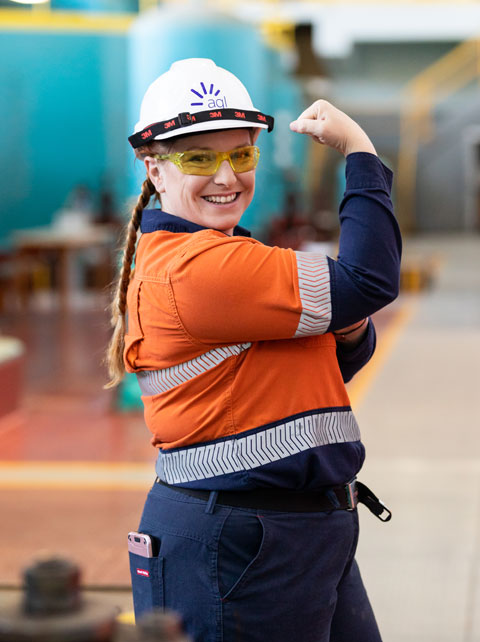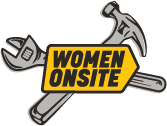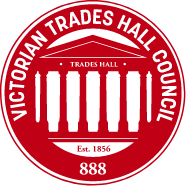Mel
Street
(she/her)
Electrician

Interviewers Yanni – Women Onsite. Mallika & Alofa – Centre for Multicultural Youth
Mallika: Mel, can you tell us about the trade you work in?
Mel: I’m an electrician by trade and currently work in power generation in hydro. In my day to day, I’m an operator and maintainer. My day to day is hugely different. One day I might be switching out a generator, which is high voltage and switching out the water. The next day I might be maintaining that generator, cleaning it, testing the motors and pumps that go along with it. I have a huge job portfolio with so much variation.
Alofa: What was your first step that brought you to working in trades?
Mel: I started with nine-weeks in TAFE, then my employer was a Group Training Organisation (GTO) who found host companies. I started with an automation company which was a really awesome first year to learn electrical, working on switchboards, as well as constructing switchboards that can control cranes and trains. I made a juicer, a biscuit maker, and a beer bottle topper. I made heaps of things in my first year and it was really cool. It gave me a really strong foundation of electrical knowledge and how circuitry works.
My next job I didn’t enjoy as much, so I spoke to my GTO and we organised a host power generation company to move me to, and the stars aligned because I started working in power generation on gas turbines. I’ve worked in three states and now live in Eildon which is a beautiful place. Trades can take you where you want to go but if you want to stay where you are, trades can do that as well.
Yanni: What drew you to power generation and why are you so passionate about it?
Mel: I was interested in the concept of power generation as I was brought up around it since I was six. So, when I was pushed into getting my trade, I had this instantaneous thought that, if I became an electrician, I could have a job like my father who is a fitter and turner in power generation. There are so many jobs you can have as an electrician. You’ve got defense forces, utilities, medical services. I think COVID has really proven the need for foundational jobs like trades. I never had a pandemic on my mind when I was thinking about stability. But you always need power.
I chose electrical, because I did a few electronics courses in school. They really interested me but I liked the bigger versions in power generation. The vision that flashed across my mind was, I could be an electrician, an electrician in power generation, I could run power stations! I could have job stability and good pay. That was like a momentary flash, a ‘let’s do this’ realisation. Having that helped me get my apprenticeship because they asked me; what’s your five-year plan? What’s your ten-year plan? And I had one. How many 19-year-olds have a five-year plan?
Think about it, five years ago, renewables were already the way of the future. It’s gonna take time to grow, but looking at where we are now and how far we’ve come in five years is amazing. Renewables was always the future and a bit of a passionate career advancement for me. Because who doesn’t want to work in hydro? Hydro’s amazing!
“I made a juicer, a biscuit maker, and a beer bottle topper. I made heaps of things in my first year and it was really cool. It gave me a really strong foundation of electrical knowledge and how circuitry works. "

“The vision that flashed across my mind was, I could be an electrician, an electrician in power generation, I could run power stations!"

Malika: And so how do you find out about apprenticeships?
Mel: Peer support is a great way to find out about apprenticeships. There are support groups out there that you can lean on to get your end goals, get that feedback to refine your search in what you want and set up for success. There are groups on social media groups who are amazing resources. There’s lots of avenues that you can chase down the apprenticeships.
Alofa: What’s it like working in a historically male dominated trade?
Mel: It’s amazing and frustrating, inspiring and it’s so many things all wrapped up into one. There is no one word to describe being a woman in a trade. It can be frustrating because it’s 2021 and sometimes you come across hurdles you don’t expect.
Yanni: So, let’s talk infrastructure for women to work within, like women’s toilets and other facilities.
Mel: Facilities is becoming one of my passion subjects. I hope that in the future on worksites there’s not only women’s toilets and change rooms, but within them a dedicated area for pumping and lactation. Being a mother is part of many women’s story and journey. Not all women are going to use it, but not all women use the showers in the workplace either. But if your journey gets to that point, it’s really important to have those facilities so they are supported in that. When we talk about building these facilities, when we were talking about building toilets and go like hang on, you don’t need an elaborate lactation room, it could be as simple as pulling across the curtain for the privacy within the changeroom. So, it’s all achievable.
Yanni: It sounds like an important inclusion, such an important step.
Mel: The mental load of returning to work after having a child is great enough before you even fathom someone continuing to express or breastfeed throughout returning to work. It becomes complex really quickly e.g., when myself and my colleagues go on a training course, I have to think, how long does training course go for, how can I freeze my breast milk so I take it back home, where can I park when I get there, how am I going to structure when I need to leave the room to pump. It gets complex really quickly.
Yanni: Was there much representation of women in historically male-dominated trades or roles when you were growing up?
Mel: I grew up on Flinders Island, off the coast of Tasmania. While I didn’t know any female tradies at the time, their island mentality was if there was a job, do it.
After watching an ABC story on the wool classing industry, I was like, oh my God, I’ve been surrounded my whole life by women challenging social norms. Some of the women I have known have done such amazing foundational work in the agricultural industry. Since then, in my hometown there have been women getting into trades including one of the ladies that I use to work with at the pub when I was younger. She’s now a qualified line worker and tradesperson, electrical tape person. I was raised around that strong female influence, but it wasn’t directly related to the occupation that I’m in at the moment. There’s a lot of work that goes in society unnoticed and unspoken but, on reflection, there is always that role model figure if you want to look for it.
Yanni: Why do you reckon it’s important to talk to younger people about pathways into historically male dominated trades?
Mel: For me it’s about acknowledging that there are women in the sectors. They might not want to join the trades but to know that women do those jobs is so fundamentally important. The acknowledgement that women can do anything. We can challenge the perception that these trades are a man’s job, because it’s a woman’s job too. I love it when I have young men in the crowd because I challenge them to think outside that norm. If a young man likes caring for people, maybe they can look at a childcare role or a nursing role. They don’t have to be confined to the gender stereotypes of occupations.
Yanni: So, what led you to create our lady tradies and rocking chicks.
Mel: I first tried to create a group and had like five or six members of people and I canned it and thought this is stupid, like no one cares. And it was a post on the Humans of New York which was about a female engineer on a construction site and she was speaking about the misogyny and gender bias that she came across, and the misogynistic comments throughout this thread were infuriating. I wasn’t engaging but I was scrolling and I found this female electrician, who was still in her apprenticeship, on her way to become a journeyperson. She said anyone that’s dismissing the story is full of shit, hasn’t experienced it, and has privilege. And I’m like hell yeah! It was a few months later that I actually got to her. It was Valentine’s Day on a night shift and I was like, I’m making this group. Made Lady Tradies and Rocking Chicks (LTARC) and added 15 other people to the group members. So, there was 16 members, and that’s how LTARC formed.
Yanni: What parts of your day-to-day work that you really value and really keeps you going, and what parts don’t you love?
Mel: Over the last decade I’ve seen a few different avenues of power generation and got a few different samples of how my job can be different on site-to-site kind of thing. And the last site that I was at was very much operational. Not as much maintenance as what I would have liked. I mean, I enjoy operations when it’s a bit more hands but when it’s more automated and you’re the overseer. It’s not as inspiring I suppose would be the right wording. Like you don’t go to work and think I did that.
Personally, I don’t get the job satisfaction from that but I know people who do. With maintenance, when something has broken down, you go out, scope the job, repair or replace it, and get something back online, and then you make some money. That’s really satisfying for me.
The process of learning is something that I became addicted to. When I stop learning or when learning stagnates is when I get bored. I think that’s probably the biggest value and for me it’s how I learned because I get to pull things apart and see how they work. For example, I now know that if I turn a tap anti-clockwise it goes on, if I do it too fast that’s not good. To have that human Interaction and finesse the operation, that’s what I get a kick out of.
Yanni: You said that you’ve moved around for work. What motivated you to move and what’s your relationship with moving for jobs in different places?
Mel: In my childhood, I moved a couple of times for my dad’s and mum’s work anyway, so I had that exposure early on. In regional areas, it’s quite common for people to move to the city for better education for jobs. I grew up on Flinders Island and when you finish year 10 you go away to go to school, whether that be Melbourne or Launceston or Hobart.
I was almost 20 when I moved out of home for my apprenticeship. So, it was something that I’ve been exposed to pretty much my whole life. In regional areas, if you want a job and it’s not available in that town, or in the region, you just have to move. I’m a strong advocate for moving to get an apprenticeship. It’s achievable to do.
Alofa: Any other advice for women looking to enter trade industry
Mel: Don’t give up. Jump on every opportunity you can. We are setting up for a rapid change. Women in trades have been pretty consistent in numbers over the last 30 years, we’ve seen a rise in apprenticeship numbers, a rise in retention of women, and I feel this will be a snowball effect. There’s such a wide variety of workplaces out there – there will be the right workplace for you.
If you want it, really strive for it!
Y: That’s incredible. Amazing, and the rest is history. Thanks so much for your time and sharing your story.


